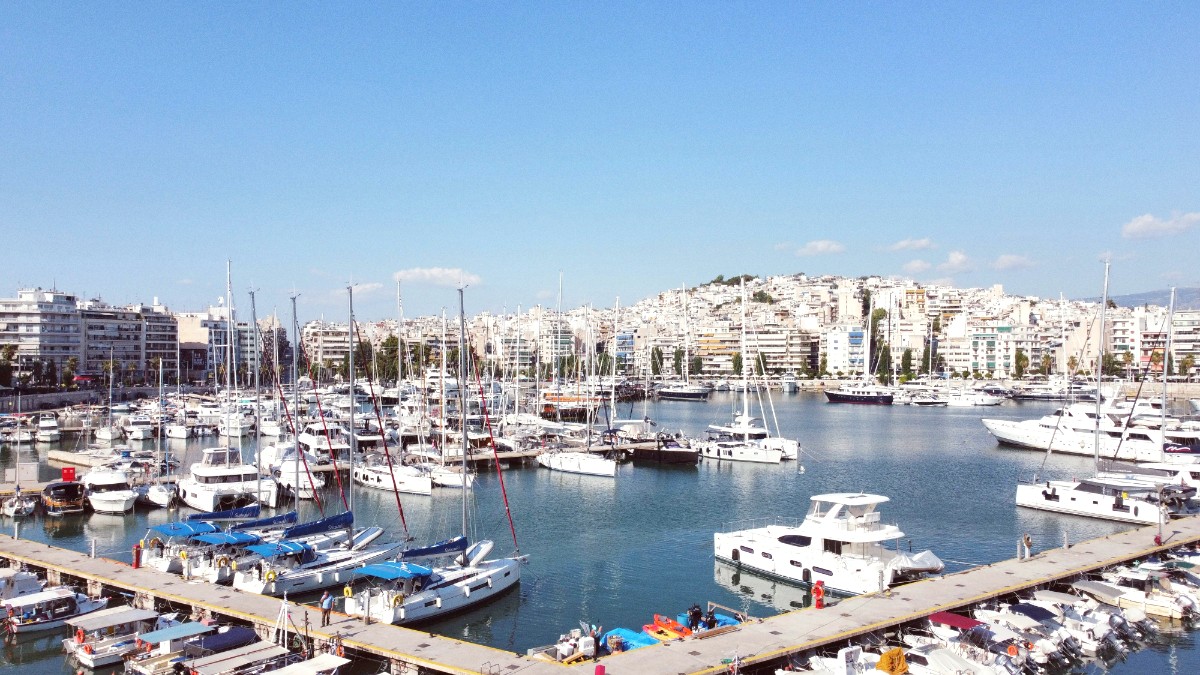
Athens, Greece
Budget Traveler Daily Costs: €40 - €70
Accommodation: Hostel dorm bed or budget guesthouse (€20-€40)
Meals: Street food (gyros, souvlaki, pastries), groceries for breakfast/lunch (€10-€20)
Transportation: Public transport only (€3-€5)
Activities: Free walking tours, limited paid attractions.
Mid-range Traveler Daily Costs: €80 - €150
Accommodation: Mid-range hotel or apartment rental (€70-€120)
Meals: Combination of casual restaurants and some street food (€30-€50)
Transportation: Public transport, occasional taxi/ride-share (€5-€10)
Activities: Several paid attractions, perhaps a half-day tour (€10-€30).
Tipping is customary in Greece but remains entirely discretionary. For restaurants, round up the bill or leave 5-10%. For casual tavernas, rounding up to the nearest Euro holds common practice. Round up taxi fares to the nearest Euro. For hotel porters, €1-€2 per bag; for housekeeping, €1-€2 per night for good service.
Use public transport (Metro, buses, tram) for daily travel; a multi-day pass has better value. Eat at local tavernas and street food stalls (gyros, souvlaki, pastries) away from main tourist hubs for more affordable meals. Buy fresh produce from local markets if staying in an apartment with kitchen facilities. A Travel money belt for secure cash storage may find use.
Price Ranges (€)
20 - 40
50 - 80
Price Ranges (€)
3 - 7
15 - 25
Price Ranges (€)
~4
1.20
A single public transport ticket (90 min) is €1.20. A daily public transport pass runs €4.10. A 3-day tourist ticket, which includes airport transfers, goes for €20. Metro/Suburban Rail from Airport to Piraeus costs €9. The X96 Express Bus from Airport to Piraeus Port costs €5.50. Taxi fares for a short ride typically range from €5-€10.
Utilize the extensive public transport network (Metro, buses, tram) rather than taxis. Consider a multi-day pass for better value. Eat at local tavernas and street food stalls for more affordable and authentic meals. Buy fresh produce from local markets if staying in an apartment with kitchen facilities. Look for combined tickets or passes for Athens' archaeological sites if visiting multiple locations.
€3 - €5
€4 - €6
€70 - €150
€25 - €40
€50+
Piraeus stands as a generally safe city for tourists. Awareness of common urban precautions makes for safer travel. Tap water in Athens/Piraeus generally holds safety for drinking; LifeStraw has portable water filters. Bottled water is widely available if preferred. Food hygiene standards are generally good. Use common sense: avoid street food vendors that appear unhygienic.
Pickpocketing remains a concern in crowded tourist areas, on public transport (especially the Metro), and around the port, specifically during peak season. Keep valuables secure. Use a cross-body bag or a Money belt. Be wary of common tourist scams, such as inflated taxi fares or individuals offering "help" that turns into a demand for payment. The port area, while busy, may see more petty crime due to crowds.
Greece is an active seismic zone. While severe earthquakes are rare, minor tremors can occur. Familiarize yourself with emergency procedures in your accommodation. Wildfires, especially during hot, dry summers, may occur in forested areas. Stay informed via local news and follow official advice. Avoid lighting fires or discarding cigarette butts outdoors.
Comprehensive travel insurance stands as a strong suggestion for all travelers to Greece. The policy should cover medical emergencies, hospitalization, trip cancellation, lost/delayed/stolen luggage, and emergency medical evacuation. Compare policies to find one that aligns with your specific needs. IVisa for visa applications. VisaHQ for direct visa services.
Piraeus has a variety of accommodation options, from budget-friendly hostels to mid-range hotels and some luxury stays, specifically around the marinas. Dining ranges from quick street food to upscale seafood restaurants.
Budget-friendly choices, often with dorms or private rooms.
Comfortable options with standard amenities.
Premium hotels, especially near Marina Zeas, with full services.
Piraeus offers a culinary journey from casual street food to fine dining.
Mikrolimano stands out for its numerous seafood tavernas, where fresh catches arrive daily from fishing boats. Marina Zeas hosts more upscale restaurants with sea views.
Throughout the city, local tavernas and souvlaki shops offer authentic Greek flavors at reasonable prices. Explore the municipal market for fresh produce and local delights.
Try local specialties like grilled octopus, fresh fish, and classic gyros.
Accommodation fills up quickly during summer (July-August) and around major holidays. Early booking has benefit.
Near the main port for ferry access, or Marina Zeas/Mikrolimano for dining and atmosphere.
Check recent guest reviews for cleanliness, service quality, and noise levels.
While dining in Piraeus is generally a safe and enjoyable experience, keep these points in mind for health and hygiene.
Piraeus has various delicious and affordable street food options. These make for quick meals or snacks while exploring.
Grilled meat (pork or chicken) served in pita bread with tomato, onion, fries, and tzatziki.
Small pieces of grilled meat on a skewer, often served with pita and condiments.
Savory pastries with spinach and feta (spanakopita) or just cheese (tiropita).